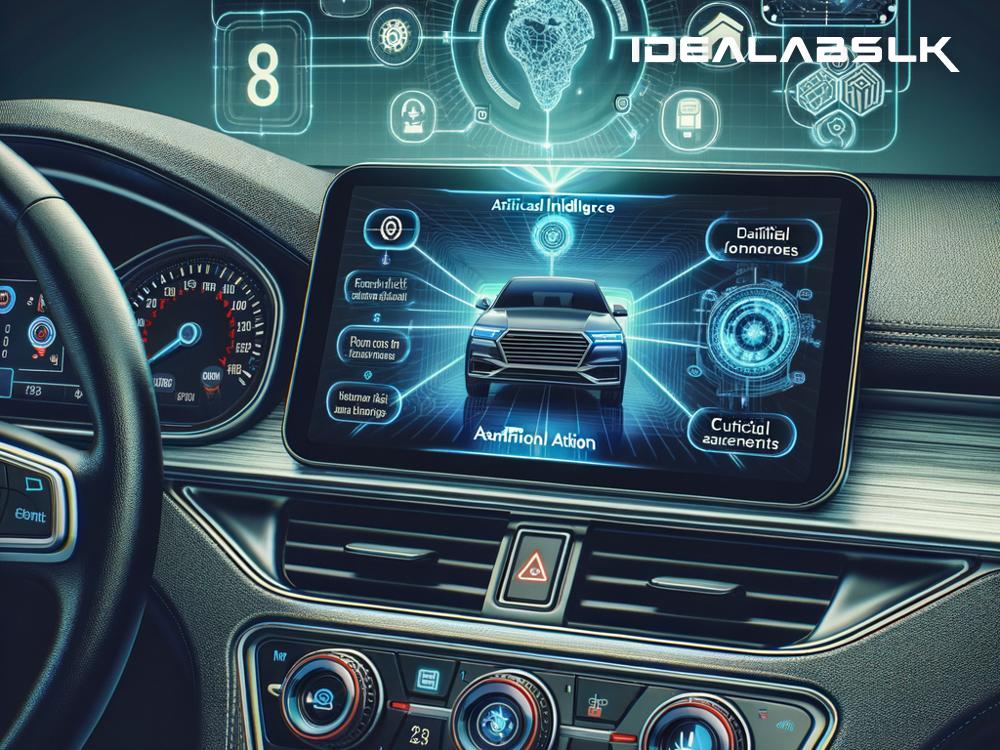AI in Advanced GPS Devices: Steering Towards Smarter Navigation
In the modern era, navigating from place to place has transformed from unfolding cumbersome maps to simply saying a destination aloud or tapping it into a smart device. This revolutionary leap is largely credited to the advancements in GPS (Global Positioning System) technology. But the journey doesn't end here. The latest wave of innovation in GPS devices comes from integrating Artificial Intelligence (AI) – making navigation smarter, safer, and decidedly more efficient. Let's dive into how AI is reshaping GPS devices, offering us a glimpse into the future of travel and logistics.
The Basics of GPS and AI
Before delving deeper, let's demystify GPS and AI. GPS is a satellite-based navigation system that allows users to determine their precise location (latitude, longitude, and altitude) anywhere on Earth. Meanwhile, Artificial Intelligence refers to the simulation of human intelligence in machines programmed to think like humans and mimic their actions.
The Convergence of AI and GPS
The amalgamation of AI with GPS technology has resulted in devices that are not only reactive but proactive, learning from the environment and user behavior to provide personalized navigation. Here's a look at the vital roles AI plays in advanced GPS devices:
1. Real-Time Traffic Analysis and Prediction
One of the most tangible benefits of AI in GPS is its ability to analyze real-time traffic data and predict traffic patterns. By considering current traffic conditions, historical data, and even special events that might affect traffic, AI can forecast congestion and suggest alternative routes. This means less time stuck in traffic and more time enjoying the journey.
2. Dynamic Route Optimization
AI algorithms continually analyze numerous potential paths to find the optimal route, not just based on distance, but factoring in real-world conditions such as road work, weather, and even the time of day. For logistics and delivery companies, this translates to faster deliveries, reduced fuel consumption, and increased customer satisfaction.
3. Enhanced Safety Features
Advanced GPS devices leverage AI to enhance driver safety through features like collision avoidance systems, lane departure warnings, and monitoring driver behavior to detect signs of fatigue. By providing real-time feedback and warnings, these systems can prevent accidents before they happen.
4. Personalized Navigation Experiences
Imagine a GPS system that learns your preferences – avoiding tolls, favoring scenic routes, or even suggesting stops based on your interests. AI makes this possible. By analyzing your past behavior and preferences, AI-powered GPS devices can offer personalized recommendations, making every journey uniquely tailored to the user.
5. Voice-Powered Interaction
Voice recognition technology powered by AI has made interacting with GPS devices more intuitive and safer while driving. Users can now issue commands, ask for directions, or make inquiries hands-free, minimizing distractions and enhancing user experience.
The Challenges and Ethical Considerations
While the integration of AI into GPS devices presents numerous benefits, it also raises challenges and ethical concerns. Data privacy emerges as a paramount issue, given the extensive collection and analysis of user data. Ensuring that these vast data sets are secure and used responsibly must be a top priority for GPS service providers.
Furthermore, reliance on AI for navigation can lead to over-dependence, potentially diminishing users' own navigational skills and spatial awareness. Balancing the convenience and benefits of AI with the need to maintain certain human capabilities is an ongoing challenge.
The Road Ahead
The integration of AI in GPS technology is not merely an evolution; it's a revolution. It's reshaping how we interact with our environment, making navigation not just about reaching a destination, but about optimizing the journey itself. From reducing traffic congestion and lowering emissions to enhancing safety and personalizing the travel experience, AI-powered GPS devices are steering us towards a smarter, more connected world.
As we move forward, it's clear that the potential for AI in navigation systems is boundless. From smart cities that seamlessly manage traffic flows to autonomous vehicles navigating our roads with precision, the future of transportation and logistics lies in harnessing the power of AI in GPS technology. The journey ahead is certainly exciting, and we're just getting started. Let's embrace this smarter navigation era, ensuring that as we advance, we do so thoughtfully, ethically, and with an eye towards the betterment of our global community.

